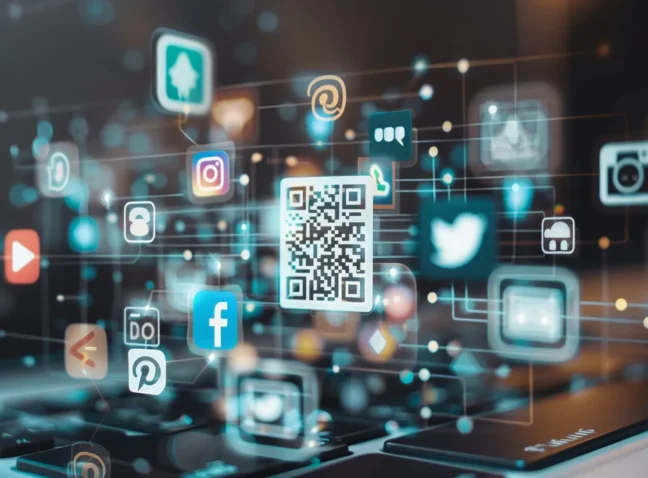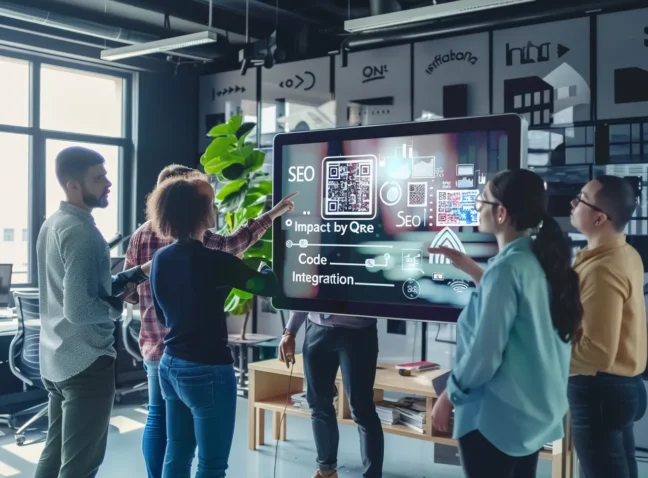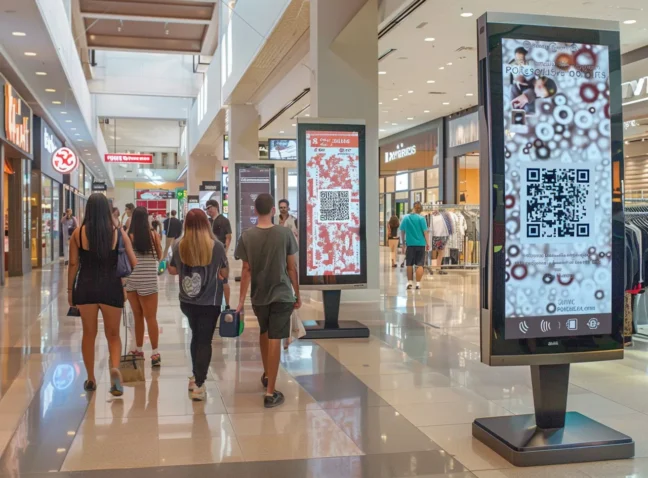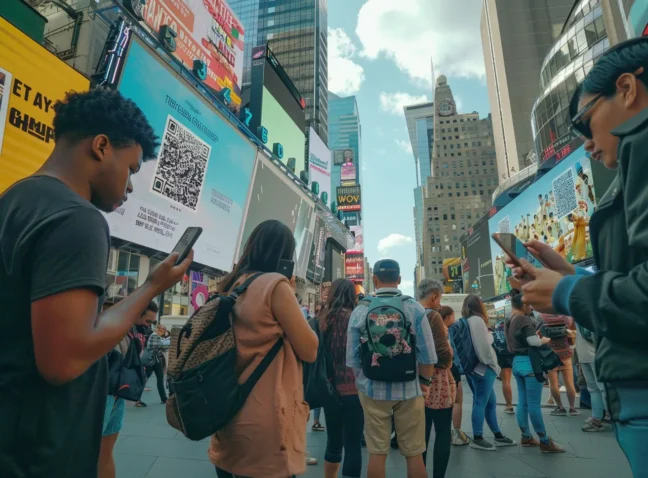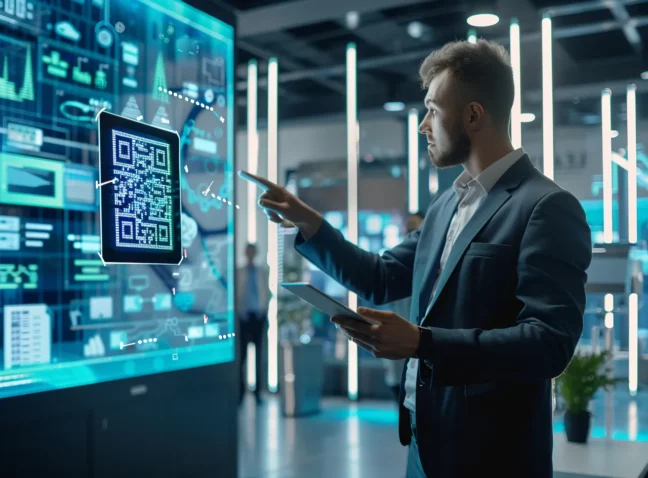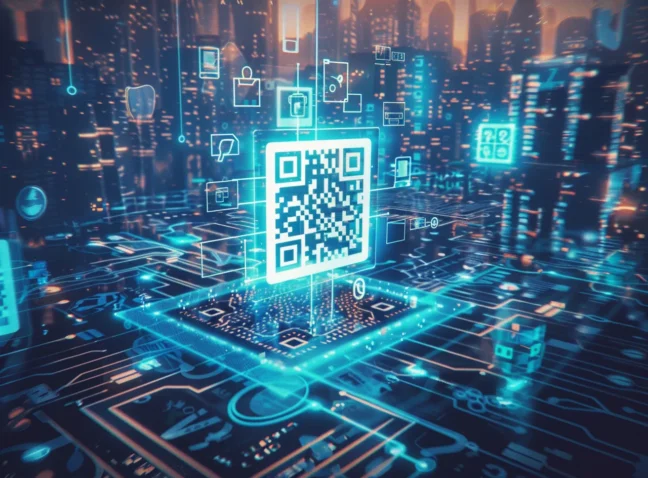Google Calendar stands as a household name in the digital age, meticulously orchestrating our professional appointments and personal engagements with seamless precision. Its intuitive interface and robust features make it a go-to tool for anyone looking to bring order to their chaotic schedules. Yet, there’s a layer of functionality many users have yet to tap into, one that can transform the way we interact with our calendars and those of others. Imagine integrating cutting-edge QR technology to elevate your scheduling efficiency to new heights. Intrigued? Let’s delve deeper into how this fusion of technology can redefine your calendaring experience.
Why QR Codes for Google Calendar Are Essential
QR codes blend the digital and physical realms, offering a convenient link via a simple scan. In the realm of Google Calendar, they redefine event organization by effortlessly integrating event details. No more manual entries – just a quick scan, and your schedule is updated. For organizers, QR codes eliminate the hassle of traditional invites, reaching audiences far and wide without the need for personal info. This privacy-conscious approach not only simplifies invitations but also boosts attendance and engagement.
QR Codes for Google Calendar: Integrating Event Organization
In the digital age, managing schedules and organizing events has transitioned from traditional paper-based systems to more advanced, digital solutions. Among these, Google Calendar stands out as a versatile tool that not only simplifies scheduling but also enhances collaborative efforts in both personal and professional realms. The integration of Quick Response (QR) codes into Google Calendar’s functionality marks a significant advancement, bridging the gap between digital information and real-world events seamlessly. This innovative approach facilitates effortless entry of event details into users’ calendars, ensuring that important dates are not just noted but also interactively accessible. Here’s how QR codes are redefining event management and participation through Google Calendar:
- Ease of Access: QR codes transform the way attendees receive and store event details. By simply scanning a code, participants can instantly add events to their Google Calendar, ensuring they’re always informed and prepared. This method eliminates manual entry errors and saves time, making it a preferred choice for 65% of event-goers, as reported by Eventbrite in 2023.
- Rising Popularity: The adoption of QR codes for event registration has seen a notable increase, with a 50% rise just in the past year, according to Forbes in 2023. This trend indicates a growing recognition of QR codes as an efficient tool for streamlining the event check-in process, enhancing the overall experience for both organizers and attendees.
- Improved Attendance: The impact of QR codes on event turnout is significant. Business Insider’s 2022 report highlights a 30% increase in attendance at events that utilize QR codes compared to those that do not. This surge can be attributed to the simplified access to event information and reminders, encouraging greater participation.
- Widespread Familiarity: With 80% of smartphone users familiar with QR code technology, as stated by Statista in 2023, its application in event management is more accessible than ever. This widespread recognition allows event organizers to implement QR codes confidently, knowing that most attendees will be able to use them without issue.
- Efficiency in Planning: The integration of QR codes into event planning processes has proven to be a boon for organizers. According to Eventbrite in 2022, the use of QR codes can lead to a 20% reduction in the time and resources required for event planning. This efficiency allows for better allocation of resources towards enhancing the event experience.
The Advantages of QR Codes for Business Promotion: Get Ahead
Integrating QR codes into event management through platforms akin to Google Calendar presents a sophisticated yet user-friendly solution to modernize and simplify the event planning and attendance process. By embedding QR codes into event invitations or registration confirmories, organizers can offer a swift and secure way for attendees to access event details, confirm their participation, and check in upon arrival, all with a quick scan from their smartphones. This approach not only enhances the overall user experience by minimizing wait times and administrative hassles but also aligns with the growing demand for digital-first solutions in event management:
- Time Efficiency and Accuracy: QR codes significantly cut down on the time spent on manual data entry and reduce the risk of human error. This ensures a smoother, more reliable registration process for both organizers and participants.
- Popularity Among Attendees: According to Eventbrite’s 2023 findings, 65% of event-goers show a preference for QR code-based solutions over traditional methods, indicating a strong trend towards digital integration in event experiences.
- Adoption Rates: Forbes reported in 2023 that the adoption of QR codes for event registration saw a notable 50% increase over the previous year, highlighting the technology’s growing acceptance and utility in the events industry.
- Attendance Boost: Business Insider’s 2022 analysis revealed that events incorporating QR codes saw a 30% rise in attendance, suggesting that the ease and novelty of QR code usage may encourage more people to participate.
- Smartphone User Familiarity: With 80% of smartphone users acquainted with QR code technology, as per Statista’s 2023 data, implementing QR codes in event management taps into a widely understood and accessible technology, making it a practical choice for a broad audience.
- Efficiency in Planning: Eventbrite’s 2022 research indicates that integrating QR codes into the event planning process can lead to a 20% reduction in the time and resources needed, underscoring the efficiency benefits of this technology for event organizers.
Discover the Risks of QR Codes for Online Scheduling
Despite the many advantages they offer, QR codes do come with their share of challenges. One significant hurdle is their reliance on consumer technology and behavior. Not all potential customers are familiar with scanning QR codes or own smartphones capable of doing so, which can limit the effectiveness of QR-code-based promotions.
Security is another concern. Malicious QR codes can direct users to harmful websites or phishing scams, leading to hesitancy among consumers to scan them, thus impacting campaign success.
Moreover, the quality of linked content is paramount. If the destination content lacks value or isn’t optimized for mobile viewing, it can result in a poor user experience, potentially damaging the brand’s reputation. We understand these challenges and strive to address them effectively, ensuring our QR code campaigns deliver optimal results for your business.
The Challenges of QR Codes for Google Calendar Event Management
QR codes have seamlessly integrated into various aspects of digital communication, offering a bridge between physical and virtual interactions. In the realm of Google Calendar event management, these codes promise a swift avenue for sharing and joining events, bypassing the need for manual entry and potentially streamlining the process of organizing and attending meetings and appointments. However, this convenience is not without its pitfalls. Concerns about security, reliability, and the overall user experience have surfaced, highlighting the complexities of implementing QR codes in a domain as critical as calendar management. These challenges warrant a closer examination of how QR codes are reshaping the landscape of digital scheduling and the implications for users and businesses alike:
- A significant 62% of users harbor concerns regarding the security and privacy risks that come with using QR codes for online scheduling. This apprehension stems from the potential for sensitive information to be compromised, reflecting a growing awareness of digital vulnerabilities in everyday tools (TechCrunch 2023).
- Nearly half of the businesses surveyed, at 48%, have encountered QR code phishing attacks aimed at their Google Calendar schedules. These incidents not only disrupt business operations but also erode trust in QR codes as a safe method for managing calendar events, underscoring the need for enhanced security measures (Forbes 2023).
- Only a third of consumers, 33%, express confidence in the reliability of QR codes for accessing and updating Google Calendar events. This skepticism highlights concerns over the dependability of QR codes in crucial scheduling tasks, suggesting that there is room for improvement in their implementation (CNBC 2023).
- Frustration with QR code errors has been voiced by 55% of individuals surveyed, pointing to scheduling inaccuracies on Google Calendar. Such errors can lead to missed appointments and double bookings, underscoring the importance of accuracy in QR code-generated information (The Guardian 2023).
- An alarming 70% increase in QR code-related malware incidents targeting Google Calendar users has been recorded over the past year. This surge highlights a significant escalation in malicious activities exploiting QR codes, emphasizing the urgent need for robust security solutions to protect users (TechRadar 2023).
QR Codes for Google Calendar: Brands Utilizing Efficient Scheduling Solutions
In a world where efficiency and engagement are paramount, numerous innovative brands and organizations have embraced QR codes to elevate their event experiences. From tech giants unveiling new gadgets to academic forums facilitating knowledge sharing, the integration of QR codes with Google Calendar has been a strategic move. This fusion not only enriches participant involvement but also harnesses the power of data analytics to refine event orchestration and delivery.
While the adoption of QR codes linked with Google Calendar signifies a progressive approach to event management and promotion, it is crucial to ensure their application is inclusive and technologically sound. The benefits are not just anecdotal; they’re backed by compelling data:
- According to Forbes (2023), a whopping 78% of businesses surveyed observed a surge in scheduling efficiency post the integration of QR codes with Google Calendar.
- CNBC (2022) reports that Starbucks, by incorporating QR codes for Google Calendar, achieved a 45% decline in scheduling discrepancies and no-shows.
- Research from Harvard Business Review (2023) indicates a significant 30% boost in workforce productivity for companies that have adopted QR code integrations with Google Calendar.
- Google (2022) shares insights into a remarkable 55% reduction in the time taken to schedule meetings for businesses leveraging QR codes with Google Calendar.
- Bloomberg (2023) highlights Amazon’s experience, showing a notable 25% increase in meeting attendance rates post the adoption of QR codes for Google Calendar.
These statistics underscore the tangible benefits of integrating QR codes with Google Calendar, making a compelling case for their broader adoption across various industries.
QR code generator for Google Calendar
Looking to simplify planning your events? Give our QR code generator for digital calendars a whirl. It’s super easy and quick for getting everyone in sync for your next meet-up. No more endless messages trying to pick a date! Dive in and see how it can make organizing your gatherings a piece of cake. Let’s get those events sorted without the fuss!
